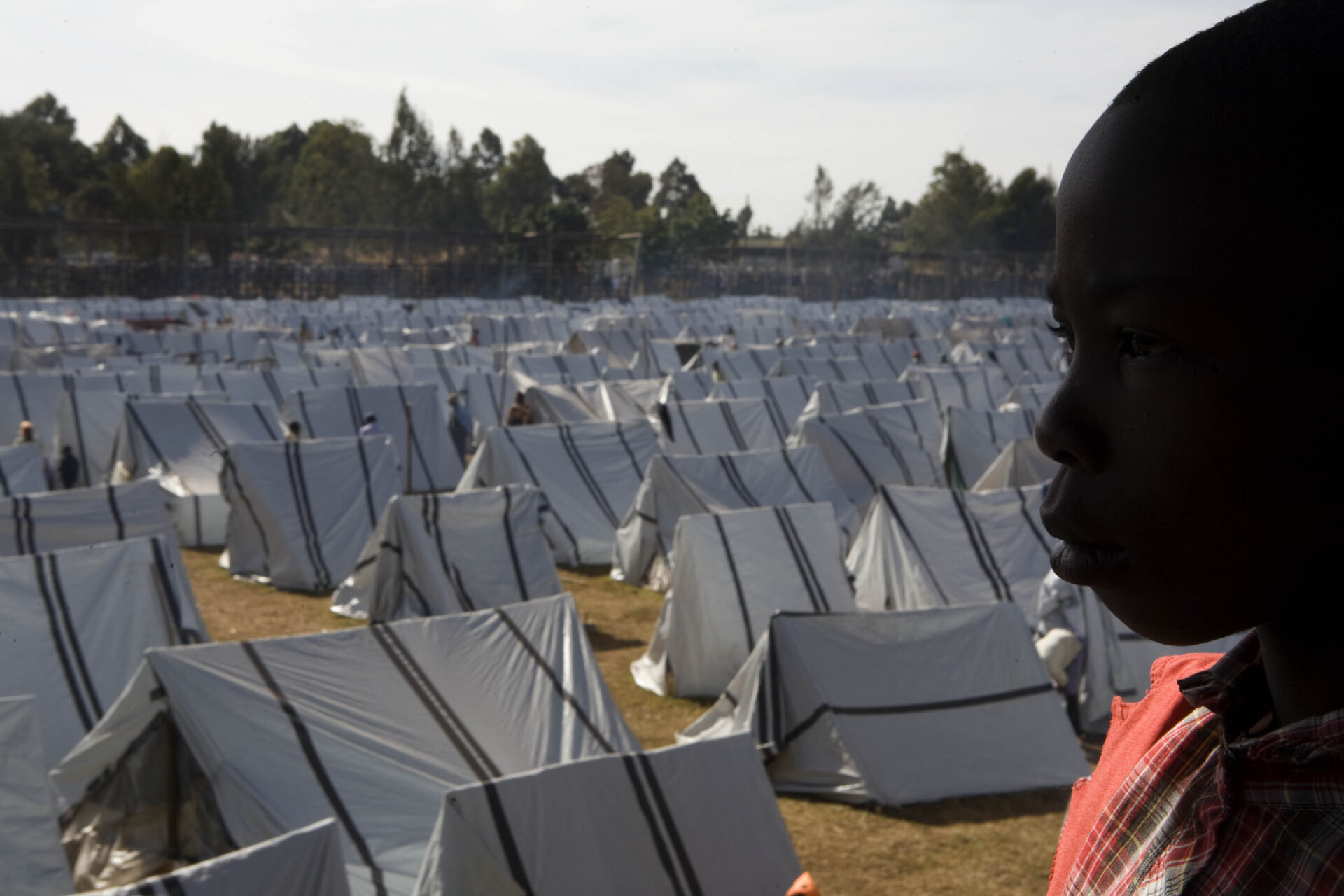
InterAction and ICVA Welcome the U.N. Secretary-General’s Action Agenda on Internal Displacement and Call for Details on its Implementation
By 2050, the World Bank estimates that more than 216 million people could be forced to flee climate pressures and natural disasters within their countries’ borders—roughly equivalent to the population of Hong Kong being displaced every year between now and then.
The combined effect of conflicts, violence, and other drivers are also likely to continue generating internal displacement. Meanwhile, many internally displaced people (IDP) across the world are trapped in protracted situations, inadequately integrated into local communities, and faced with restricted access to shelter and services. States often neglect or are unable to fulfill their sovereign responsibility to recognize the needs, rights, and agency of internally displaced people and their host communities. Systems to connect internal populations on the move with resources and relieve host communities are often disorganized, depleted, or missing. At the global level, humanitarian policy guidance to coherently address internal displacement is also lacking.
NGO Engagement with the High-Level Panel on Internal Displacement
Secretary-General Antonio Guterres launched the U.N. High-Level Panel on Internal Displacement in 2019 to generate recommendations to promote durable solutions for internal displacement. InterAction and ICVA member organizations have heavily engaged with the High-Level panel’s consultative process and shaped its 10 final recommendations to the Secretary-General. In October 2021, the NGO community strongly urged the Secretary-General to take immediate action on recommendations directly under his purview. In February, the Secretary-General released his Draft Action Agenda on Internal Displacement, outlining a series of 31 U.N. commitments that together are designed to:
- Help IDPs find a durable solution to their displacement.
- Prevent new displacement crises from emerging.
- Ensure those facing displacement receive effective protection and assistance.
InterAction and ICVA have now compiled member feedback on the proposed agenda, focused on strengthening the planned mechanisms for achieving its U.N. commitments, and highlighting proposals developed by the High-Level Panel that are not reflected in the draft. InterAction and ICVA welcome the agenda’s recognition that internal displacement requires whole-of-government and whole-of-society approaches to address the needs of displaced people and ensure their enjoyment of equal rights. NGOs welcome the recognition of climate change as a risk multiplier and collective priority and highlight that government involvement is needed in the implementation of the Action Agenda to ensure governments are held responsible and accountable for their IDP populations.
InterAction and ICVA Reactions to the Secretary-General’s Action Agenda on Internal Displacement
- NGO representation: NGOs seek clarification on how the proposed mechanisms will work together and how they can best represent views from the three IASC NGO networks, including in the global level Steering Group, and at the country level via Humanitarian Country Teams, to ensure their specific expertise and operational experience are drawn upon throughout the Action Agenda. NGOs also look forward to learning how the Steering Group will interact with the U.N. Country Team and the Humanitarian Country Teams. As GP2.0—an informal community of experts working on forced displacement—engages in regional consultations, NGOs highlight the need to also specify how the initiative will interact with the Special Adviser, her/his team, and the Steering Group of U.N. Agencies. It is crucial that these bodies and representatives are complementary and representative of all stakeholders to work toward durable solutions for IDPs.
- Importance of building on other initiatives: The Secretary-General’s Action Agenda comes two years after his Call to Action for Human Rights. NGOs highlight the need to clearly articulate how the Action Agenda will reinforce the Call to Action for Human Rights in support of rights-based approaches, how the Special Advisor and the Steering Group will work with the Special Rapporteur on the Human Rights of Internally Displaced Persons, and what leverage they will use to bring pressure to bear on States.
- Financing: InterAction and ICVA welcome the approach of mobilizing existing funding mechanisms and stress the need to plan how the proposed financing window under the Joint SDG Fund, which is linked to U.N. Country Teams, can also benefit non-U.N. stakeholders to implement solutions programming. It is important to define the roles of the ad hoc forum for finance actors and the current OPAG-IASC Task Force to promote their strategic and efficient use.
- Data: InterAction and ICVA emphasize the importance of government ownership and responsibility for collecting and managing data on IDPs, and express concern that the language from the High-Level Panel’s report which tasked governments with putting “in place processes and systems to collect, analyze, and manage internal displacement data” has been softened to “support(ing) states” to develop mechanisms for data collection.
Conclusion
NGOs welcome national dialogues with affected communities and relevant experts and seek clarification on how these may be convened, supported, and resourced, and stand ready to support governments in organizing these national dialogues given their regular work with affected communities.
In this perspective, NGOs suggest:
- Re-establishing an enlarged and more inclusive Group of Friends than was established during the High-Level Panel’s mandate, ensuring participation from donor countries and countries with a large IDP population and NGOs.
- Promoting a discussion with States to consider the High-Level Panel’s Report and develop their own commitments going forward, particularly given that many of the recommendations are targeting States.
- Establishing a Member State follow-up mechanism allowing for peer-to-peer exchange and the discussion of best practice examples.
- Considering concrete ways for NGOs to contribute to the Secretary-General’s forthcoming Agenda for Protection.
- Ensuring explicit and dedicated focus on children and young people and an age, gender, and diversity (AGD) agenda.
- Reflecting on how to maintain the High-Level Panel’s ambition of countering the ‘invisibility’ of internal displacement issues, possibly through working towards a catalyzing event or building upon planned opportunities in 2022-2023.








